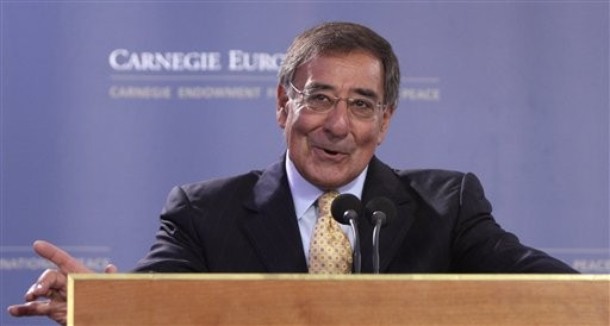
From Leon Panetta, U.S. Department of Defense: These are the concerns that we must work together to address as we look towards the NATO Summit next May in Chicago. Ideally, we will be able to halt additional cuts in defense or at a minimum keep defense spending at current levels. Recognizing the financial and political realities we face, we need at a minimum to coordinate additional cuts, avoid surprises, and ensure that our limited resources are being put into the most efficient and effective defense programs. We cannot afford for countries to make decisions about force structure and force reductions in a vacuum, leaving neighbors and allies in the dark. This must be a transparent and cooperative process.
An example of making the best use of our defense resources is the "Smart Defense" – so called "Smart Defense" — initiative that was launched by Secretary General Rasmussen, which could be harmonized with the EU’s "pooling and sharing" initiative. We should also work together to deliver on the capability programs and initiatives our leaders identified at Lisbon. For example, the Alliance Ground Surveillance so called AGS system, which is critical to boosting the alliance’s ISR capabilities – surveillance capabilities — is currently at an impasse due to disagreements over funding. AGS is a crucial symbol of alliance collaboration. If we are going to move into the future, if we to have a cooperative relationship with regards to capabilities this is crucial to be able to put into place. AGS is not only a crucial symbol of alliance cooperate it is indeed a true bargain for NATO. Unless it is implemented successfully, the drive for similar, cost-effective, multinational approaches to capability development would be seriously undermined.
Going forward, we will also need to fundamentally review how the alliance organizes itself to fight, and to identify and protect the core alliance military capabilities we need in order to meet the challenges we will face in the next decade.
Finally, between now and the Summit, we should look for innovative ways to enhance and expand our partnerships both with those countries outside NATO that are exceptionally capable militarily, and those that strive to be more capable. A look at the composition of NATO’s ongoing operations – in Libya, Afghanistan, off the coast of Somalia – makes it clear that non-NATO partners will be increasingly central to NATO’s future activities, particularly as we all strive to more broadly share the burden of defending our common interests.
We live in a world of growing danger and growing uncertainty – where we face threats from violent extremism, nuclear proliferation, rising powers, and from cyber attack. We cannot predict where the next crisis will occur. But we know that we are stronger when we confront these threats together. The benefits that our countries derive from working together to defend common interests and protect our security and prosperity are obvious. They are enduring. They are key to the future. And it is precisely because of the growing security challenges that we face and growing fiscal constraints that we face that we absolutely have to work more closely than ever as partners. Security in the 21st century will not be achieved by each nation marching to its own drummer. It can only be achieved by a willingness to fight together to defend our common security interests. That is the world that we must shape today, to build a stronger world for tomorrow.
With the fall of the Qadhafi regime, our nations saw an example of why NATO matters, and why NATO remains indispensable to confronting the security challenges of today. Approaching the Chicago summit next year, we need to use this moment to make the case for the need to invest in this alliance, to ensure it remains relevant to the security challenges of the future. In confronting the budget challenges that I face in the United States, I have made it clear that I am prepared to make the tough decisions needed to avoid hollowing out the United States military. My goal is to protect our military strength. Throughout history we need to learn the lessons of the past. After World War I, after World War II, after Korea, after Vietnam, after the fall of the Iron Curtain, we made the mistake of hollowing out our forces. That cannot happen again. Similarly, NATO nations need to send a strong signal of our determination not to hollow out this alliance – but instead to keep it strong and to keep it vital for the future.
Excerpts from remarks by U.S. Secretary of Defense Leon Panetta at Carnegie Europe, Brussels. (photo: AP)
Image: ap%2010%205%2011%20Leon%20Panetta.jpg
